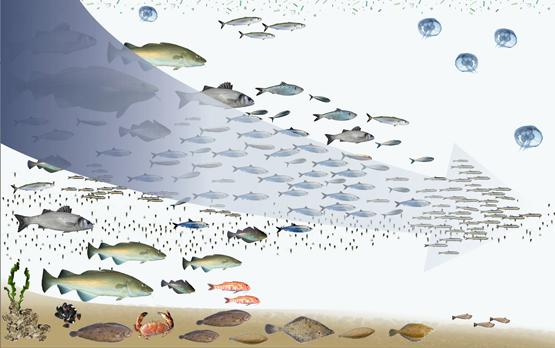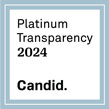Shifting Baselines: Daniel Pauly’s TED Talk
March 21, 2012
We asked Daniel Pauly, a fisheries scientist at the University of British Columbia, to expand upon his recently posted TED talk. He delivered the presentation on the 2010 Mission Blue voyage to the Galapagos and spoke about the concept of shifting baselines.
Why did you decide to speak about shifting baselines as the topic of your TED talk?
Because the other things that I could talk about were covered by the other speakers at the conference. That’s one thing. The other thing is the state of the world’s resources and the ocean fisheries and the reduction of biodiversity. By speaking about shifting baselines I added the dimension that explains why we do not perceive this shift. The conference, then, as a package presented the decline of marine biodiversity and explained it. This is based on a one-page paper I wrote in 1995 called “Anecdotes and the shifting baseline syndrome of fisheries.” It’s one of my most cited papers, though it’s a very short piece. It’s like a thinking piece; it has no numbers, no equations. This piece became the topic of a blog that ran for several years by a Hollywood filmmaker. It became a stock phrase. In fact, a book has been recently issued called “Shifting Baselines: The past and the future of ocean fisheries,” and is dedicated to me and the discovery of this. In fisheries and oceans this is a big deal that people know about. I coined the phrase in 1995.
What inspired you to write this paper?
It was probably in the air at the time. One day I got an email (it was at the beginning of emails). The email was from a gentleman called at the time Sir Robert May. Now he’s Lord Robert May and was president of the Royal Society in England, a well-known scientist. He said a post-script writer for an editorial in [the journal] Trends in Ecology and Evolution had not delivered and they needed a quick page to fill the journal. I quickly wrote the essay and emailed it to him. I think this was to fill in the gap. So I wrote it and didn’t consult any sources—it was a head dump. But it was in the air; I had recently visited a conference and the word had not been used, but it was clear.
Do you think we can even define the pre-industrial fisheries baseline?
Yes and no. We can go to certain areas, for example, completely un-fished areas of an uninhabited island in the Pacific, and see lots of sharks. This indicates that the reefs without sharks that you see in most diving resorts are completely artificial. In reality we cannot even fathom what the world might have been, what wealth of animals were there without people. For that reason, since this word and concept was formulated, there has been an outburst of a new discipline, if you like. It’s called historical ecology. [Environmental scientist] Loren McClenachan has done her thesis on this. Her research illustrates how anglers caught enormous fish off Florida in the 1950s and now they catch tiny fish, but they’re still happy about it because they think these are just the fish we have in the sea and they don’t know the difference. We cannot exactly reconstruct what was there before but we can document in historical ecology some of the things that were lost. It becomes an anchor point to the past that we can try to reestablish through marine protected areas, for example. The topic of this trip to the Galapagos, remember, was Sylvia Earle’s wish that we set up marine protected areas. Marine protected areas recover some of this lost biodiversity, so historical ecology was in line with what the purpose of this trips’ conference was, of the Mission Blue.
What can we do to promote more marine protected areas?
The trip was one way to do that. Essentially, marine protected areas are necessary for the fisheries to be able to coexist with biodiversity. They are also needed to reestablish biodiversity that is lost. The big fish that people caught before, they cannot reestablish themselves if you maintain a fishery. Even if you have a few anglers, they will prevent big fish from establishing because they go specifically after the big fish. The point, though, is while this is from an ocean conference and it is a TED talk labeled ‘ocean,’ the shifting baseline occurs in terrestrial things and even cultural things. A shifting baseline occurs not only because things have changed, but also because the baseline has adjusted itself to the change, so that the change is not perceived. As I recall to my students, to document change is not enough, the point is that people adjust to the change so they lose track of what’s been done before. Obesity is a good example: people are getting fatter and the perception of what people think weight should be is changing, so that you don’t know that you are fat compared to what’s normal from the past. Nothing against fat people, it’s just an example.
Do you think we can ever return to the pre-industrial fisheries levels?
Well, no, because first of all we cannot define them. Return to what? But we can become aware of the change that we’re not aware of. If we specify a given time, let’s say 1900, and we say ‘what did we have in 1900?’ we can list what we don’t have and decide if we want it back. It doesn’t have to be a time that things were so pristine that we can’t go back to. That would be like defining perfection, which is unattainable. You don’t want to discourage yourself. But the process is incessant. Therefore, having an anchor in time prevents you from changes you don’t want. Changes you want are ok. But changes you don’t want and don’t even know are happening—that is the problem. This concept empowers you to decide what should happen as opposed to going there without knowing you are moving.
If you were to deliver another TED talk, what would you speak about?
I would describe that we have expectations of the Earth that the Earth cannot meet. I would illustrate this with fisheries, not because I am passionate about it, but because it beautifully illustrates the way we go about it. The fisheries as a global system have expanded in space. We can compute the expansion rate, and see that it’s coming to an end because there’s no more space to expand into. The expectation that there will always be more fish for us to eat cannot be met. Basically, we have this concept from before that we can expand, we can do more, that the growth can be sustainable—and it’s simply not true. We cannot expand our population and expect that we can produce the food that everybody needs. We cannot expect to increase our consumption of fish and expect that there will be fish for everybody. In the case of fisheries we have overshot already. People think this model can be resolved by eating the right fish, but in this concept there is no right fish: there’s too much [fishing] of everything. Culturally, this is a message that anybody who tries to deliver will be labeled ‘doom and gloom’ and will be called a pessimist and not being positive and stuff, and yet it is scientifically bound. You can see, there was recently two or three TED talks about this topic, and our survival on this planet depends on us being able to wrap our minds around this notion. My style of presentation is that I kind of generally try to joke and be funny. I can get across unpalatable things. So that’s what I would do: I would try to convey that we have to change things but we can do it in such a way so that we don’t expend things at a loss. Lots of things we do are so silly that we destroy things and we don’t benefit from it. We could organize our lives around sustainability and still have a good life. So that’s what I would like to do if I were to do it again.
Top Image: Fishing down the food web. Credit: Hans Hillewaert, WikiCommons








